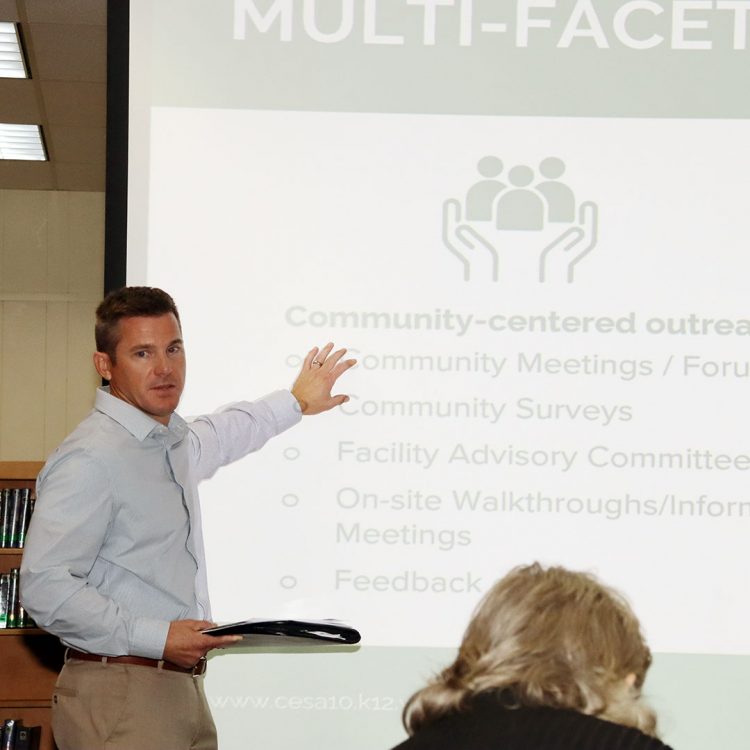CESA feels they’re a good fit for Cornell project


Luke Schultz, CESA, spoke Sept. 23, about how their team is all local and works with the community, when a building project takes place. The Cornell School District is considering ...


Luke Schultz, CESA, spoke Sept. 23, about how their team is all local and works with the community, when a building project takes place. The Cornell School District is considering ...